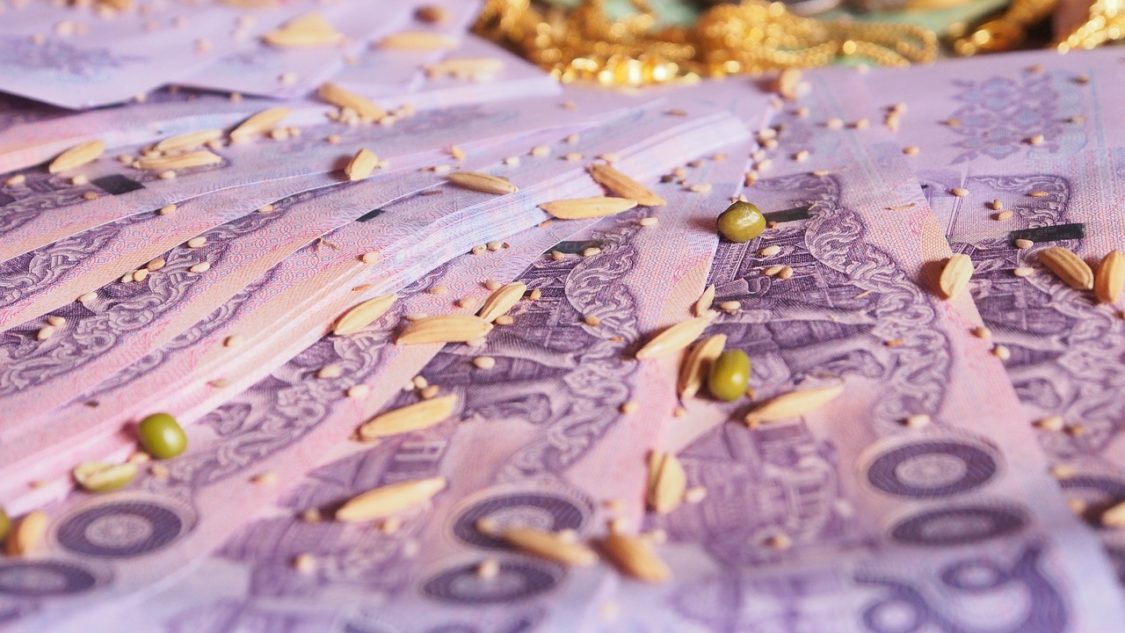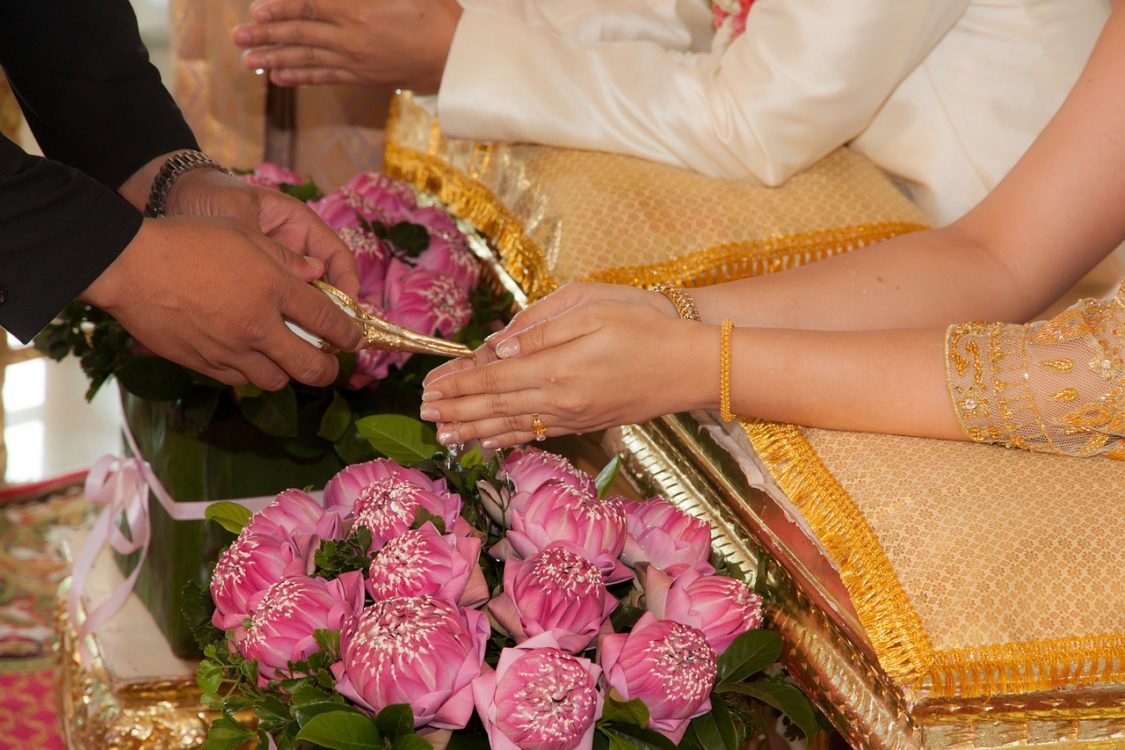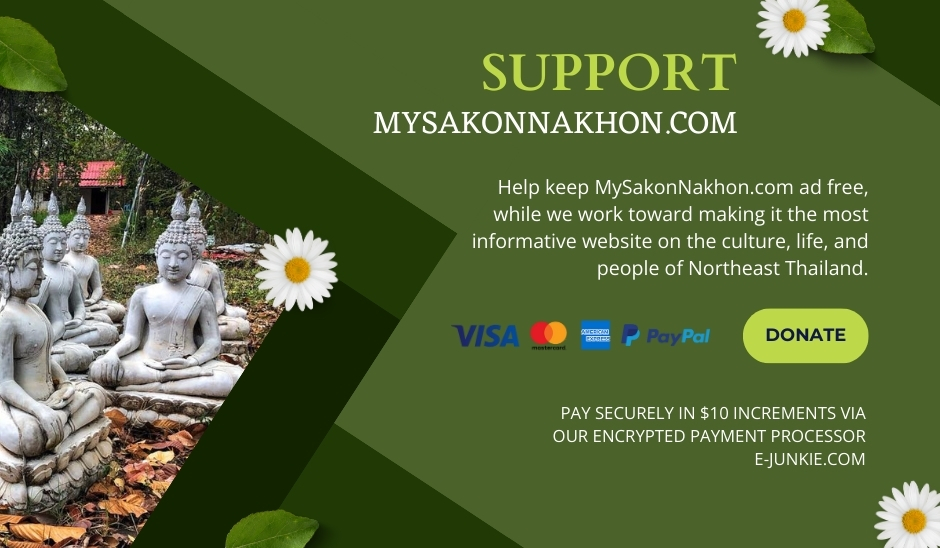
Thailand Dowry Culture: Defending a Sin Sod (Bride Price)

The Thai dowry or bride price, known as a “sin sod” (สินสอด), is a practice that many Westerners view as a backwards tradition. Even some wealthier, educated Thais believe this old wedding custom should be abandoned. Thais jokingly say that the “sin sod” (pronounced sin sawt) is to reimburse the bride’s mom for her “mother’s milk”. If that were really the reason, then the practice should be put out to pasture. But it isn’t. In reality, there are many sound, practical reasons for why the Thai dowry was (and still remains) a wise tradition that protects many Thai brides and their parents.
For starters, it is not uncommon for young Thai men (especially in rural areas) to abandon their wives, who they never legally married, after they have a child. While Thai law states that both the father and mother are legally obligated to financially support their child until the age of 20, in reality when the father disappears to another village, they are rarely if ever tracked down by the mother, who ends up raising the child with her parents. The Thai dowry thus helps to financially support the child.
Next, young Thai men often live dangerously, and drive motorbikes recklessly. As we talked about in our article “Is Driving in Thailand safe?” young Thai males are known to speed down dark roads at night without a helmet after downing several beers or glasses of lao khao (white whiskey). The result is that motorbike accidents (injuries) are the leading cause of death for Thai men in their 20s.
Anyone who has taught for a long time in Thailand will tell you how shocking it is to discover how many students have lost their father. The Thai dowry (sin sot) thus also serves as a type of life insurance policy that helps the young widow and her parents raise the couple’s child (if they have one).

Should Foreigners Pay the Thai Dowry?
What about those foreigners who complain about having to pay a bride price, calling it a ridiculous antiquated practice? Should they quit complaining and pay up? Yes, for good reasons the Thai “sin sod” should be paid by foreign husbands, even if they are marrying a Thai woman who has been previously married or already has a child.
Why? Because the foreigner-Thai divorce rate is likely well over 50%. There are no official statistics on this, but around a 70% divorce rate is our educated guess, and we think few Thai lawyers or long-time expats in Thailand would argue with that. The Thai dowry thus again serves as protection for the bride if the marriage ends in a divorce, there are no significant assets to split, and the foreigner skips town or leaves the country.
What if the Thai woman is no longer of child bearing age, or for some reason the couple is not able to have a child, should the Thai dowry be paid then? Yes, the “sin sod” should still be paid up front in most cases. The first and most important reason is that when you marry a Thai woman, you marry the family.
In Thai culture, children are expected to support their elderly parents. The Thai government’s old age allowance is only 600-1000 baht a month, and not nearly enough for most elderly. If you don’t pay the Thai dowry up front, you’ll still be expected to support the wife’s parents with a small monthly allowance (unless they are financially well-off).
Another reason for foreigners paying the Thai dowry is that when you get married in Thailand, you are expected to show that you can financially support the bride. And a demonstration of this ability is in the form of the “sin sod,” which is on display on a silver bowl at the wedding.
What if you don’t have the money to pay the Thai dowry? If the man has a respectable but low paying job, such as in a government office or as a teacher, the Thai bride price will sometimes be given back to the bride and groom, especially if they are using that money to build a house or buy a car (i.e. an important asset that the wife can keep should the man leave).
When marrying into a rural Thai family in an upcountry province like Sakon Nakhon, one should expect to save up at least 50,000 baht (often closer to 100K) to display at the wedding, even if the “sin sod” (สินสอด) is being returned by the parents.
Do I still have to pay a dowry if I am marrying into a wealthy Thai family? Yes, you often still will be expected to pay a “sin sod” — even though the practical reasons we cited above don’t apply as much. In fact, wealthy Thai parents can be much more demanding when it comes to a bride price versus poor, rural families in Isaan. A wealthy Thai family may wish you to demonstrate with the “sin sod” that you have the financial means to support their daughter in the “hi-so” manner which she is accustomed.
We once knew a young Thai man in Bangkok who fell in love with a girl whose wealthy parents demanded a bride price that included a new BMW plus 1 million baht. Even though he had a good job as a graphic designer at a large company and worked on independent projects in the evening, he still could not raise the money for the dowry. After several years, the girl finally got her parents to reduce the “sin sod” to something more manageable.
In cases such as this, it is understandable why many wealthier young Thais are in favor of abandoning the Thai dowry tradition. So, if you are foreigner marrying into a wealthy Thai family, you shouldn’t think that a hefty dowry request means that you are being taken advantage of. The practice is common for Thai grooms too.
Can a man sue to have the Thai dowry returned if the marriage fails? After becoming legally married in Thailand, the “sin sod” becomes the sole property of the parents and the man has no legal rights to the money. However, if the man pays the dowry before the wedding, and then the marriage does not occur for some reason, the parents are legally obligated to return the money. If they do not, the man can sue the parents for the return of the bride price.
If you have already gotten married in Thailand, learn how to maintain the relationship with our Thai marriage advice.
- Monogamy and the Mia Noi in Thailand - April 27, 2024
- How to Greet a Monk in Thailand – Saying Hello - April 22, 2024
- Hottest Place in Thailand – Record High Temperature 2024 - April 22, 2024




